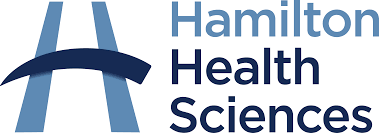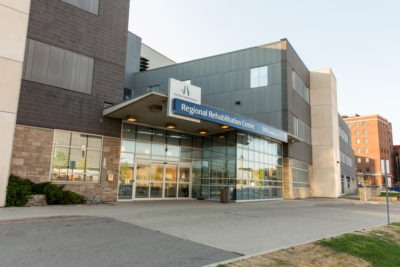If you have recently had an amputation, you are likely experiencing many new things that are associated with this change. Through our rehabilitation program, you will learn a lot about coping with your amputation.
During your care at the Regional Rehabilitation Center, you will not only be fit with your prosthesis, but you will also work with many other allied health care professionals that specialize in helping you adjust to your life with an amputation.
You will learn about exercises and activities you can do that will help with daily living. You will practice with your therapists. Besides learning to walk with your prosthesis there are other things you will learn about to help you cope with life as an amputee:
- skin care
- bandaging or shrinker socks
- sock adjustment
- care of your prosthesis
- typical reactions to loss of a limb
- resources available in your community
- how to manage stress
- good nutrition
Care We Provide
Your rehabilitation will be supervised by a physiatrist (a doctor who specializes in rehabilitation). Prior to your rehab, you be assessed by the doctor and other members of the rehab team. During your clinic visit we will help you:
- Assess your health
- Develop rehab goals
- Complete funding applications for your prosthetic device
The Amputee Rehabilitation team will regularly meet with you to evaluate your recovery and adjust your program to help you meet your rehab goals.
Focus of rehabilitation is on:
- achieving ambulation with a prosthesis or improving transfers with a prosthesis
- practicing functional ambulation activities e.g. stairs, curbs, ramps
- practicing functional activities of daily living e.g. transfers, self-care, reaching, carrying
- identifying and prescribing necessary equipment for discharge
- learning management of life with a prosthesis – includes coping, knowledge of prosthesis, nutrition and good health practices
- learning about leisure activities and community reintegration
- regular education classes with ongoing individual education as required
- length of stay is typically 4-6 weeks
Our Team
During your rehabilitation, several team members will play a role in your care:
- Physician will oversee your care
- Nurses will help provide care for you and keep an eye on your skin as it heals
- Nutritionist will help to ensure you are eating healthy
- Prosthetist will fit you with a prosthetic device
- Physiotherapists will help you regain some of your strength and train you how to walk with your new prosthesis
- Occupational therapists will help you learn to make adjustments in your home to ensure safety in completing everyday tasks
- Pharmacist will help coordinate your medications
- Recreational therapist will help reintroduce you back in the community and to recreational activities that you enjoy while using a prosthetic device
- Social workers will help you with any concerns you may have about where you will go after your discharge and help you cope with any personal difficulties you might be experiencing
Eligibility & Referrals
Eligibility Criteria
- Assessment in the Amputee Clinic to determine readiness to participate in the program (e.g. wound healing, medical stability, physical status)
- Patient goals include desire and motivation to use a prosthesis
- Patient has attainable functional goals related to mobility and transfers with the aid of a prosthetic device
- Discharge destination is identified
Referral Process
HHS inpatient referrals: A doctor’s order is required to request an inpatient consultation. Intake Office will triage referrals to the appropriate service.
Referral forms and accompanying information should be faxed to 905-577-8233.
In addition to the referral form please provide:
- Patient demographics
- Relevant consultation notes and diagnostics related to the referral
- OR note
- Current medication record
- Recent lab tests including ARO status
- Therapy (PT/OT) notes if available.
Once the information has been received, an appointment will be booked in the Amputee Screening Clinic.
At the clinic appointment, information is provided about the rehab program and appropriate pre-rehab treatment recommendations (e.g. residual limb bandaging, strengthening, wound care).

